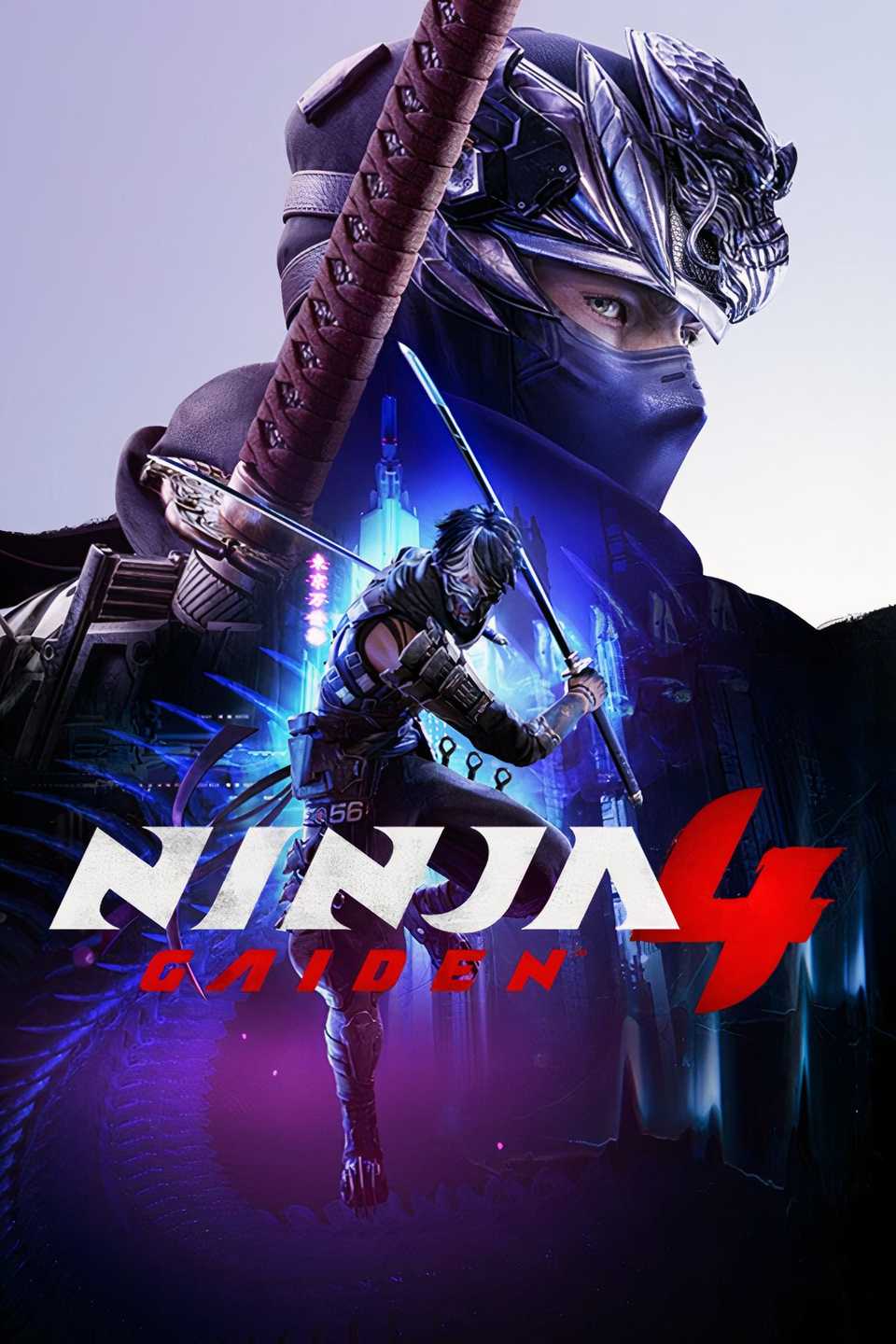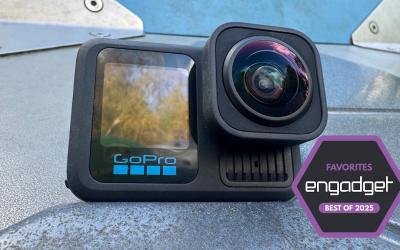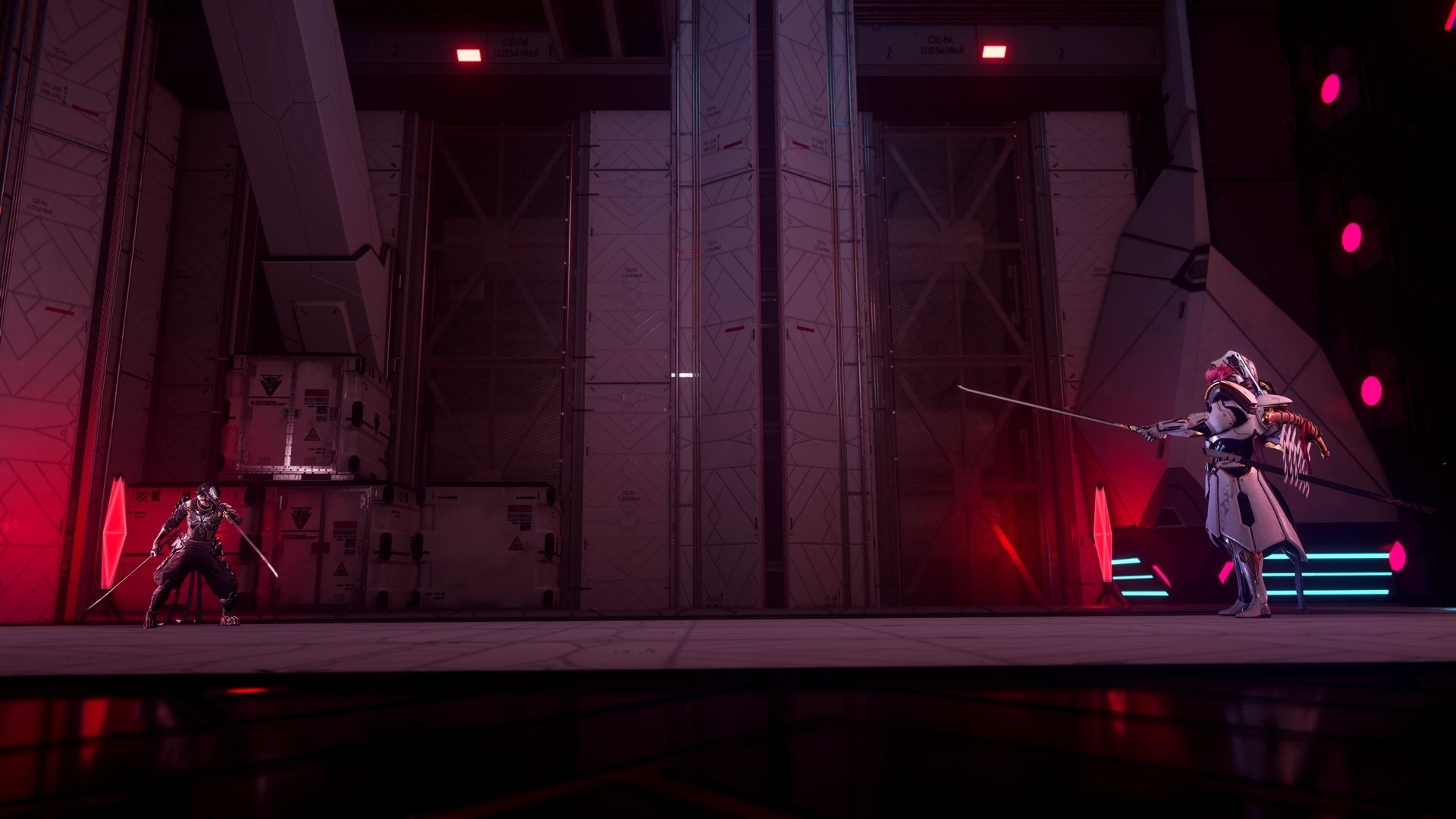Every time I sit down to write my Ninja Gaiden 4 review, something funny happens: I find myself playing the game for an hour or so instead.
Whoops.
It’s funny, because at first, I wasn’t sure how I’d feel about the game. It’s been such a good year for Ninja Gaiden fans, though, to be fair, we were long overdue. The 2000s were a strong decade for the franchise, thanks to 2004’s Ninja Gaiden for the Xbox, 2005’s even better Ninja Gaiden Black, and a worthy sequel in 2008’s Ninja Gaiden 2 for the Xbox 360. However, that was the last time Producer and Director Tomonobu Itagaki would work on the franchise, resigning from Tecmo shortly before the release of Ninja Gaiden 2.
Fans feared that without his direction, the franchise would falter, a theory aided by the less-than-stellar reception to the original release of Ninja Gaiden 3. In an ironic twist of fate, things changed for the better in 2012 with Ninja Gaiden 3: Razor’s Edge, a launch game for the Nintendo Wii U of all things, that represented a return to form for the series. However, the damage was done, and, combined with the rise in the popularity of FromSoftware games and the Soulslike genre, the Ninja Gaiden franchise and Ryu Hayabusa took a bit of a nap.
Then, earlier this year, out of seemingly nowhere, during an Xbox Developer Direct, Microsoft had a surprise for us. The showcase began with that iconic Team Ninja cinematic, leading into the surprise reveal of Ninja Gaiden 4. Now, here we are, nine months later, and the wait has been worth it.
Welcome Back, Old Friend
The biggest question Ninja Gaiden 4 needed to answer was how it compares to the franchise’s legacy. Ninja Gaiden 2 Black did a great job of not just reintroducing the former gold standard of 3D action games, but the modern-day Ninja Gaiden franchise itself. Having said that, it’s pretty easy to make the “definitive” version of a great game. Building something from the ground up in a major franchise is a risky endeavor. Additionally, introducing a new playable protagonist to replace an iconic character like Ryu Hayabusa is, to say the least, incredibly risky.
Against all the odds, Ninja Gaiden 4 succeeds. It’s like a brilliant marriage between Team Ninja and the Ninja Gaiden tradition alongside co-developer PlatinumGames and their modern flair. There’s a great amount of respect on display here, particularly when playing as Ryu, that helps fit Ninja Gaiden 4 neatly into the franchise timeline. I don’t feel bait and switched like some people felt back in the day in Metal Gear Solid 2: Sons of Liberty, with Raiden taking over for Solid Snake. Instead, Yakumo feels like he’s been a part of the series since day one.
Ninja Gaiden 4 is pure cinema.
Does he feel a little more, for lack of a better term, “anime” than Ryu? Yes, and how you feel about that depends on how much anime you enjoy in your gaming experience. Is it the end of the world either way? Far from it. In fact, playing as Yakumo, which does carry some slight differences compared to Ryu, feels like a great modern interpretation of the classic Ninja Gaiden gameplay experience. During the game’s original reveal, Team Ninja stressed how the two characters handle things differently.
One key reason for this is that Ryu, controversially, only has access to one weapon: the Dragon Blade. Yes, it’s super disappointing, especially since earlier this year I enjoyed using a variety of different weapon builds in Ninja Gaiden 2 Black. Thankfully, the modernization of Ninja Gaiden 4’s combat ultimately had me not caring as much as I anticipated.
What also helps is the fact that Yakumo is able to wield a variety of weapons himself. Combined, the two offer several playstyles that can fit various strategies and skillsets, all of which come in handy.
No Matter How You Play It, Ninja Gaiden 4 Is A Blast
In fact, let’s discuss those skillsets further, as accessibility has been a major talking point for Team Ninja leading up to the game’s release. Director Masakuza Hirayama has spoken on several occasions on the importance of allowing players to, well, “git gud.” Consider, for a second, Hollow Knight: Silksong, a game whose frustrating difficulty was a major point of contention following its anticipated release.
Rather than dive into that traditional “one standard difficulty” approach so many Soulslikes do, Ninja Gaiden 4 instead offers several difficulty options for players, ranging from “we’re going to auto block and dodge for you,” all the way to “I’m gonna kick your ass, and you’re going to like it.”
Against all odds, and I can’t believe I’m saying this, but I’ve enjoyed my time playing on every difficulty level. Yes, even the game’s “Hero” mode, which comes with every training wheel you can think of. Was my adrenaline racing in the same way as it was when playing through the game’s Boss Trials on Master Ninja? No, of course not. Was the combat pure cinema as I racked up impressive combos? You bet. At the end of the day, that’s the best way to describe Ninja Gaiden 4: pure cinema.
I mean, just look at these screenshots.
I’m not afraid to admit how much time I’ve spent in photo mode, and I’m someone who never wastes any time in photo mode. Then again, when I’m fighting a cyborg interdimensional demon shark on a techno-disco stage, yeah, I want to spend some time in photo mode.
One minute, I’m taken aback by how cool the combat looks, and the next, I’m blown away by the game’s cinematography. While the graphics themselves aren’t as crisp and clean as I would have preferred, the game is still a visual treat from start to finish. It’s also, if you didn’t notice, delectably violent and gory, as if things were ripped straight from a Quentin Tarantino film.
Sadly, like a certain Tarantino film that people (incorrectly) love to hate (Death Proof is great), there are some moments within Ninja Gaiden 4 where things slow down a little too much. There are a lot of rail grinding sections that ultimately feel like a combination of platforming and quicktime events. They’re easily my least favorite part of the game, and in some cases, take me a little too much out of the action. Yet something strange happened as I was on my second playthrough: I didn’t hate them as much as I did before.
Does it help that I know where I’m going, which in turn helps make these moments feel a little more, well, cinematic? Absolutely. It also acts as a nice respite to let me catch my breath before jumping into the next firefight. Are they still one of my least favorite parts of the game? You bet, at least in terms of gameplay.
Dead Or Alive
Above all else, my least favorite aspect of Ninja Gaiden 4 is its story, which technically exists.
Now, I’m not exactly someone who plays these games for the lore and world-building. I play Ninja Gaiden to be the ultimate badass Master Ninja. Still, I have to commend Team Ninja and PlatinumGames for delivering a clear-cut plot that’s at least comprehensible and easy enough to follow along, even if some of its stakes and twists aren’t exactly earned.
I mean this in the best possible way: Ninja Gaiden 4’s violence reminds me of a Quentin Tarantino film.
To use that term again, things venture a little too much into the realm of anime (derogatory), especially with some of its characters. Still, the overall cinematic experience is peak anime (flattering), especially when it comes to the game’s music. The soundtrack to this game’s boss battles will make you run through a brick wall. It keeps you going, even when you’ve been beaten, downtrodden, and ready to throw in the towel.
It helps you dig deep, find that hidden gear you didn’t know you had, and even when you’re out of items and on your last legs, find the courage to overcome the odds and, backed by the power of friendship your ninja training, deliver that lethal blow and come out victorious… Only to be humbled by the game’s scoring system. Go ahead, Ninja Gaiden 4, try to shame me with that subpar rating. It doesn’t matter.
Despite Its Imperfections, I Love Ninja Gaiden 4
It’s truly a testament to the quality of Ninja Gaiden 4 that I’m still talking about it. Normally, I take pride in my brevity and conciseness when it comes to reviews. Yet here I am, perfectly content to keep yapping away about this game. Ironic, since I keep staring at my Xbox controller and hearing its siren call to sit down and play it.
Maybe just one quick Trial…
…okay, that turned into five Boss Trials and a couple of Challenges. It’s surprising, considering that there are some less-than-minor annoyances that come with the gameplay here.
Let me get this out of the way: the camera in Ninja Gaiden 4 is miles better than Ninja Gaiden 2 Black, but it’s still not perfect. There are times when my character gets lost in the shuffle and, combined with an imperfect targeting system, can lead me to getting stunlocked, especially on higher difficulties.
Here’s the thing, though: it’s not deterring me from enjoying the game. In fact, more often than not, once I get into a nice rhythm, I’m not worried about the targeting system. Are there times when I snap back to reality? Yes. Does it make me rage quit? No. If anything, it locks me in more, especially when that fight music starts blaring.
Now, if you’ll excuse me, it’s time to wrap this up and jump back into the action.
A Note About PC Performance
One of the nice things about the Xbox ecosystem is that I’m able to play Ninja Gaiden 4 on both console and PC. As such, I was able to swap back and forth between the two platforms during my review.
However, the move from PC to console was one that was, at first, out of necessity. Initially, performance on PC was sluggish, and it wasn’t due to the game’s high graphical demands. Now, I’m not going to sit here and tout the specs of my computer; it gets the job done, having run Expedition 33 flawlessly. I’m realistic about its limitations, though, with my 3070 and most of the hardware five years old at this point.
My first thought was to lower the graphic settings, but I was still experiencing sluggishness, as if the game was still installing somehow; there was a loading animation in the bottom right of my screen. After updating my drivers and finishing the campaign on console, I returned to my PC, curious about how Ninja Gaiden 4 will perform.
Thankfully, it went off without a hitch, as if it were just a pre-release hiccup. Visually, the game looks as good as it did on my Series X, so again, this won’t be a graphical powerhouse. However, the more important thing here is the game’s frame rate. While I wasn’t quite achieving the advertised 120 FPS, I was routinely hitting over 100. Thankfully, any concerns of mine about how the game handles on PC versus consoles were dealt with.
I wasn’t sure what to expect with Ninja Gaiden 4 at first, as it felt like there was no way for the game to live up to all of its expectations. The more I play and spend time with the game, though, the more I fall in love with it. The combat is a perfect evolution that maintains everything I love about Ninja Gaiden, while also incorporating the accessibility and convenience of modern game design. The camera and targeting system can be annoying at times, but more often than not, those concerns fade away as I get into a groove and carve up enemies with my favorite weapons. This is the gold standard for fast-paced, high-octane, 3D action games. I just hope we don’t have to wait another ten years for the next one.

- Released
-
October 21, 2025
- ESRB
-
Mature 17+ / Blood and Gore, Intense Violence, Strong Language, Suggestive Themes
- Peak. Cinema.
- Over-the-top violence, incredibly satisfying combat, and an impressive challenge: this is a true, blue Ninja Gaiden experience that brings together the best of Team Ninja and PlatinumGames.
- Some of the best cinematography I’ve ever seen in a video game. Stylish, breathtaking, and delightful.
- The story is nonsensical and the major plot moments aren’t earned.
- Camera and targeting system aren’t perfect, but in the grand scheme of things, you can live with them.
- Ryu can only use one weapon.
















